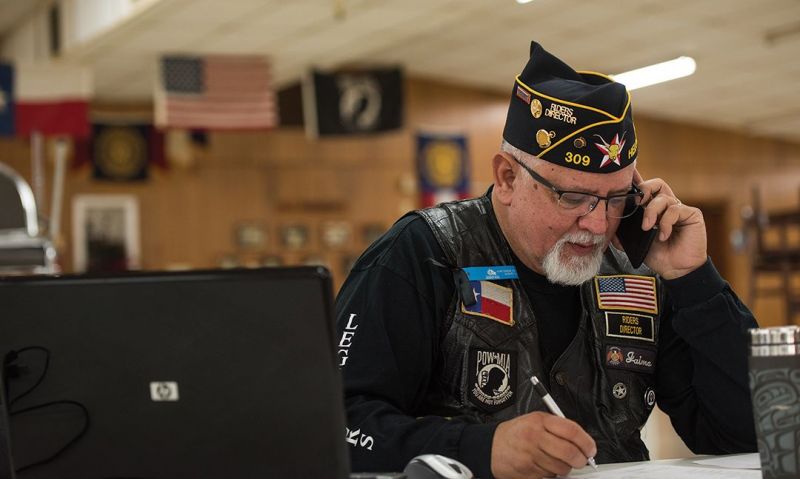
Your guide to starting and making Buddy Checks
Executive Committee members of American Legion Post 826 in Woodland Hills, Calif., are reaching out to the post’s World War II and Korean veterans to check on their needs as they are homebound during the coronavirus pandemic. The phone calls by the committee members resulted in the need for grocery pickup, food donations and over the counter medication needs.
Leland Thompson American Legion Post 647 in Alameda, Calif., recently emailed – and mailed members without emails on file – the April issue of its newsletter. In his column, Post Commander Greg Owens addressed the temporary closures of businesses, restaurants and social establishments to help prevent the risk of catching and spreading the coronavirus. Even though Post 647 is part of these closures, Owens reminded members in his message that they are not alone and if a need arises – grocery shopping, prescription pickup, travel needs, etc. – a group of dedicated post members are available to help. “Our goal is to keep you healthy and see you through the ‘shelter in place’ request,” Owens wrote. His message concluded with a contact number to call for assistance.
Department of Oklahoma Commander Ronald L. Gott distributed to Legionnaires statewide a “Call Two Action” letter. He asked for members to call two people in their phone contact each day to check in, whether that’s family, friends or veterans. If they speak with a veteran, Gott asked them to say, “Thank you and your family for your service to our country. Is there anything The American Legion can do to help you?”
The time to check on the well-being of veterans is now with COVID-19 affecting everyone. That contact can be made through Buddy Checks, whether it’s a message in your newsletter, like Post 647, a phone call or a postcard via mail. Veterans may not always need food or other daily assistance; just hearing a voice on the phone or a written message of hope is a reminder that they are not forgotten.
Checking on veterans in your community, whether their membership is paid up, expired or they’re a potential new member, allows The American Legion to reach out to ensure basic needs are met. And these Buddy Checks are not about membership. Department of Alabama Adjutant Greg Akers said when his Post 216 members are making calls, that they do not discuss membership unless it is brought up and then they need to be prepared to answer. "This tactic is VITAL in this effort a Buddy Check is NOT a membership drive," he said.
Buddy Checks: How to get started
- Create a team to make the calls. Akers said four members from Post 216, including Post Commander Luther McAnally, are calling weekly on all active, expired and DMS members. Akers said one person can make about 70 calls in three to four hours depending on conversation lengths. “All of our members, expired or not, will hear from four different people in the post. This reinforces that the entire post cares about their well-being and not just one person,” Akers said.
- Access a list of current and former members at www.mylegion.org. One team member can save those names in a spreadsheet, or copy and paste into a Word file, and distribute among the team members via email.
- Make a list of local resources and phone numbers of services such as pharmacies with drive-thru windows, restaurants that are now providing order-ahead takeout and meal delivery vendors. Post 216 has its county service officer’s contacts and all emergency contacts for the VA available.
- Ask the veteran how they are doing and if they need anything. Post 216 callers ask anything from mowing the lawn to picking up groceries. On a spreadsheet identify those who may need a follow up or additional assistance.
- Leave contact information in case the call doesn’t get answered so you can be reached.
Download the Buddy Check guide
The new “How to Perform a Buddy Check During the Coronavirus Pandemic” is available to download here.
